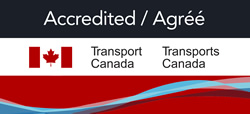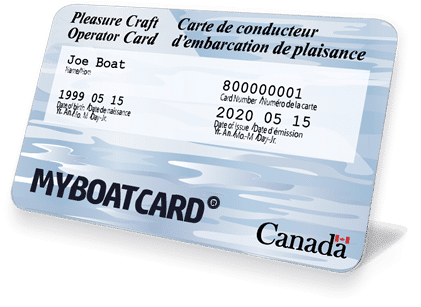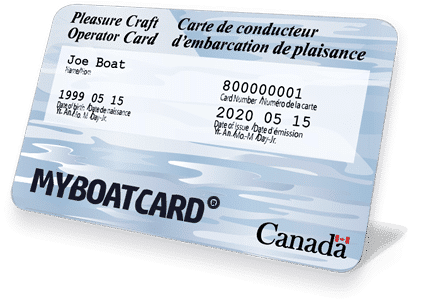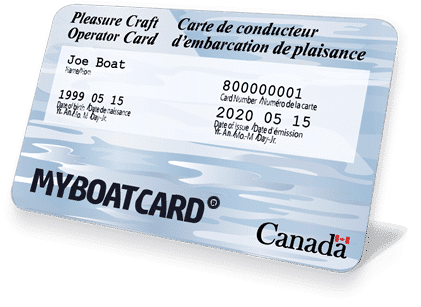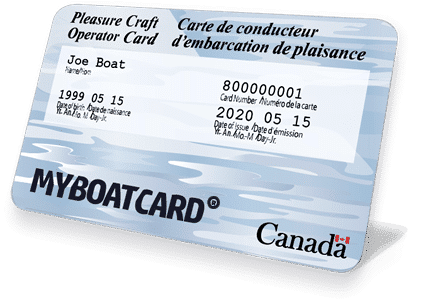Recreational Boating Deaths in Ontario
The Lifesaving Society’s 2023 Ontario Drowning Report reveals alarming statistics and essential safety insights regarding recreational boating deaths in Ontario. This comprehensive guide delves into the leading causes of these fatalities.
Key Factors Leading to Boating Fatalities in Ontario
According to the Lifesaving Society – 2023 Ontario Drowning Report, the top 3 factors in Recreational Boating Deaths in Ontario were:
- Not Wearing A PFD
88% of individuals who died as the result of a recreational boating-related incident were not wearing a Personal Flotation Device (PFD). Having a PFD onboard is not enough; it must be worn at all times to provide effective protection. - Alcohol Consumption
38% of individuals who were fatally injured in a recreational boating-related incident had consumed alcohol. - Boating Alone
38% of individuals who were fatally injured in a recreational boating-related incident were boating alone.
Table of Contents
Lifesaving Society - Ontario Drowning Infographic (2023)
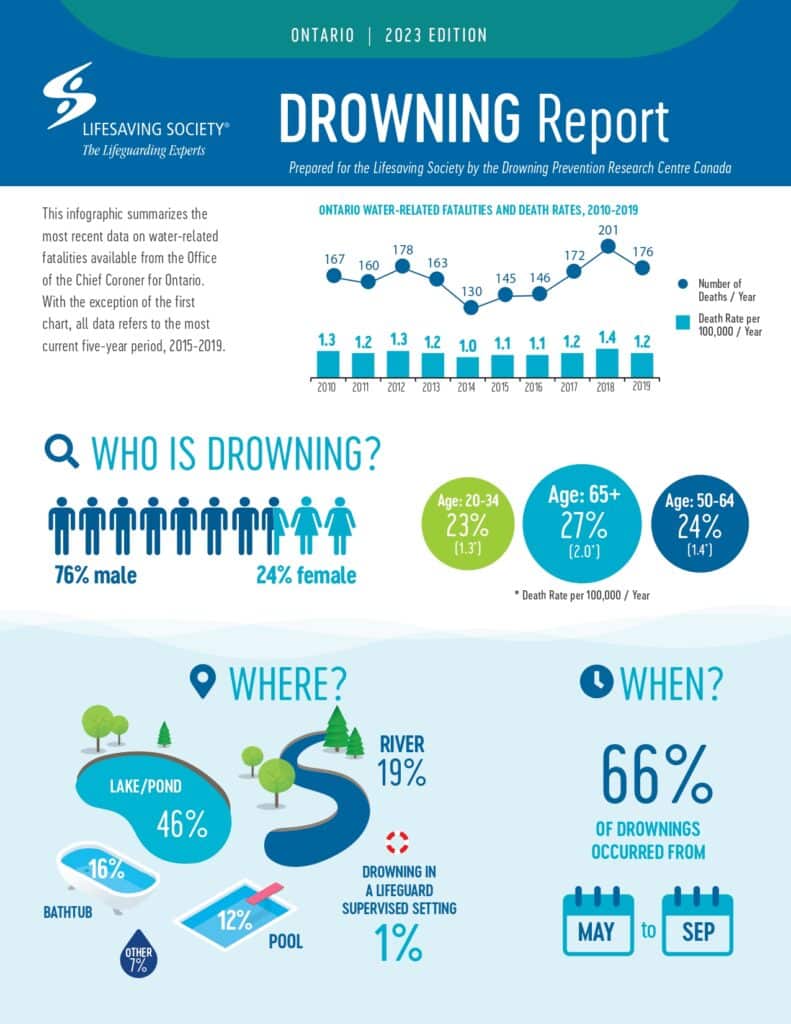
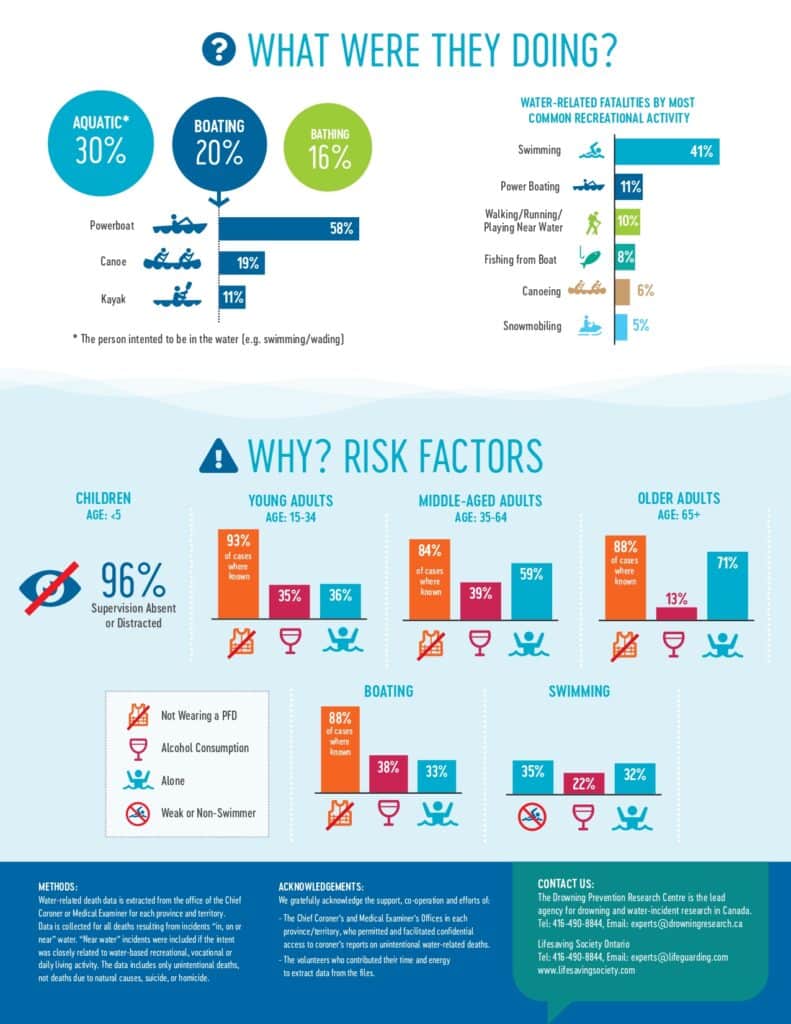
Lifesaving Society – 2023 Ontario Drowning Report Infographic
Lifesaving Society - 2023 Ontario Drowning Report (2023)
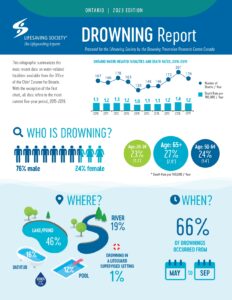 The Lifesaving Society in conjunction with the Drowning Prevention Research Centre – produces a yearly report on drownings and near fatal drownings in Ontario.
The Lifesaving Society in conjunction with the Drowning Prevention Research Centre – produces a yearly report on drownings and near fatal drownings in Ontario.
The most recent 2023 report summarizes the most recent data on water-related fatalities available from the Office of the Chief Coroner for Ontario. With the exception of the first chart in the report, all data refers to the most current five-year period, 2015-2019.
Some of the report’s other main findings include:
In 2019, the most recent year of data available, there were 176 water-related fatalities in Ontario. 35 of these deaths were boating-related.
20% of all unintentional water-related fatalities in Ontario, were recreational boating-related fatalities.
76% of drowning fatalities in Ontario were males.
46% of all drownings in Ontario occurred on lakes.
The Key Factors : In More Detail
1. Not Wearing A PFD
 An overwhelming 88% of recreational boating fatalities involved individuals not wearing a Personal Flotation Device (PFD). This stark statistic highlights the undeniable importance of PFDs in ensuring safety.
An overwhelming 88% of recreational boating fatalities involved individuals not wearing a Personal Flotation Device (PFD). This stark statistic highlights the undeniable importance of PFDs in ensuring safety.
Keeping a PFD within reach but not wearing it falls short of being a sufficient safety precaution. In situations where an individual unexpectedly goes overboard or their boat capsizes, especially under harsh weather conditions, it becomes extremely difficult to locate and put on a life jacket. Additionally, if a flotation aid is not worn a person might start to hyperventilate and accidentally breathe in water.
Always wear your life jacket, it could save your life!
2. Alcohol Consumption
Roughly 38% of individuals who were fatally injured in a recreational boating-related incident had consumed alcohol. Alcohol consumption was most prevalent in young adults.
Alcohol’s effects on boat operators are often more pronounced than they realize due to environmental stressors. Even a small amount of alcohol can greatly affect a boat operator’s abilities, as it impairs judgment, diminishes motor skills, and hampers reaction times. Additionally, alcohol reduces the body’s resistance to cold, accelerating the onset of hypothermia.
The sun, wind, noise, vibration, and movement experienced while boating contributes to a condition known as boater fatigue, which can amplify the effects of alcohol by up to four times. Moreover, dehydration caused by heat and sun exposure increases the rate at which alcohol is absorbed into the system, further impairing the operator’s performance.
Never drink and operate a boat. It’s illegal.
3. Boating Alone
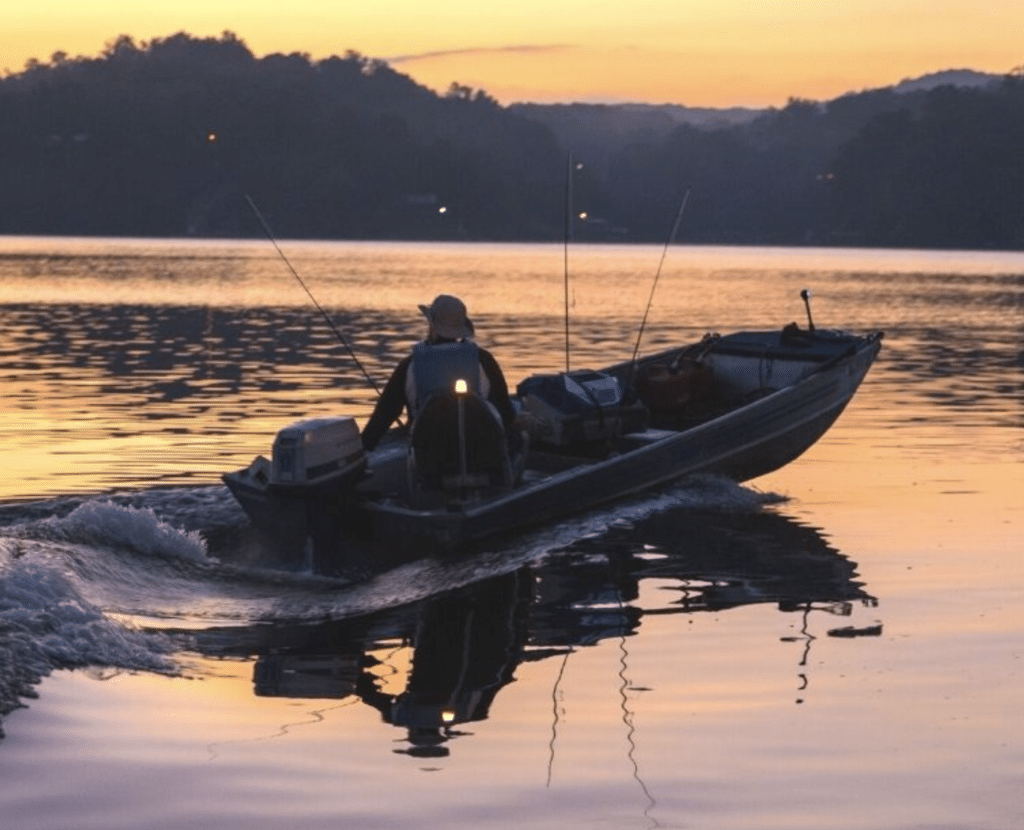
38% of individuals who died in recreational boating incidents were alone at the time.
One of the most substantial dangers associated with boating alone is the risk of falling overboard. If you find yourself alone and happen to fall off your vessel, you may find it very hard to reboard the boat, especially in cold waters.
Therefore, solo boaters must exercise heightened safety measures when navigating alone on the water. When operating a small vessel independently, it is crucial to always be tethered to the boat with a kill switch, always wear a lifejacket, and file a float plan, informing someone of your itinerary and expected return time.
Other contributing factors to boating deaths
Other significant contributors to boating fatalities include standing up in the boat, overloading the boat, boat collisions, performing dangerous maneuvers, poor boating safety knowledge and challenging environmental conditions are significant contributors to these incidents.
Recent Research and Statistics
Lifesaving Society
- 2023 Ontario Fatal Drowning Report
- 2023 Ontario Non-Fatal Drowning Report
- 2022 Ontario Non-Fatal Drowning Report
- 2021 Ontario Non-Fatal Drowning Report
- 2020 National Drowning Report
Drowning Prevention Research Centre
Canadian Red Cross
Recreational Boating Deaths in Ontario : FAQ’s
What is the number one cause of death in boating in Ontario?
Not wearing a Personal Flotation Device (PFD) is the number one cause of recreational boating-related deaths in Ontario.
What causes roughly 40 percent of boating deaths in Ontario?
Alcohol consumption is the cause of roughly 40% of all recreational boating deaths in Ontario.
The consumption of alcohol in a pleasure craft is much more dangerous than most people realize. Alcohol intensifies the effect of fatigue, sun, wind, and boat motion to adversely affect balance, judgment, and reaction time.
In Ontario, which type of recreational boating activity was associated with the majority of fatalities?
The highest frequency of recreational boating-related fatalities in Ontario occurred when the person was powerboating (58%). The majority of these involved a small powerboat (less than 5.5 meters in length). After powerboating, the next most common was canoeing (19%), followed by kayaking (11%).
Do more males or females die in boating incidents in Ontario?
On average 80% of all recreational boating-related fatalities were male.
Which provinces or territories in Canada have the highest boating death rates?
The highest number of recreational boating fatalities occur in the most populous provinces: Ontario (30 deaths/year), Quebec (19 deaths/year), and British Columbia (19 deaths/year).
From 2008–2017, average annual recreational boating-related fatality rates were highest in the Yukon (3.0 per 100,000), the Northwest Territories (1.8 per 100,000), and Newfoundland and Labrador (1.0 per 100,000).
What time of the year do most recreational boating-related fatalities on in Ontario?
On average 70% of recreational boating-related fatalities occurred in the warmer months (May through September).
Information in this FAQ section regarding statistics is provided from the publications: Drowning Prevention Research Centre – 2021 Recreational Boating-Related Fatalities in Canada and Lifesaving Society – 2023 Ontario Drowning Report
Get Certified. Stay Safe.
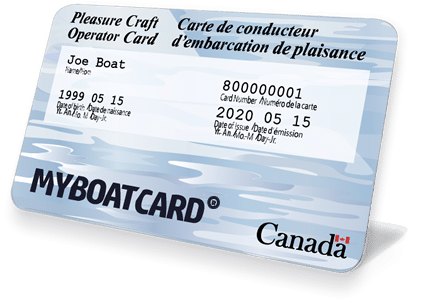 According to the Lifesaving Society and the Canadian Red Cross, most recreational boating deaths are easily preventable and are the result of a lack of knowledge of the basic boating safety principles.
According to the Lifesaving Society and the Canadian Red Cross, most recreational boating deaths are easily preventable and are the result of a lack of knowledge of the basic boating safety principles.
That’s why it’s so important to take a Ontario boater safety course and obtain your Ontario Boating License (PCOC).
MyBoatCard.com provides an online boating course designed to equip you with essential knowledge for staying safe on the water. Start your journey towards being a safer boater today!
Join the over 3 million certified Canadians, and get your boating license today!
